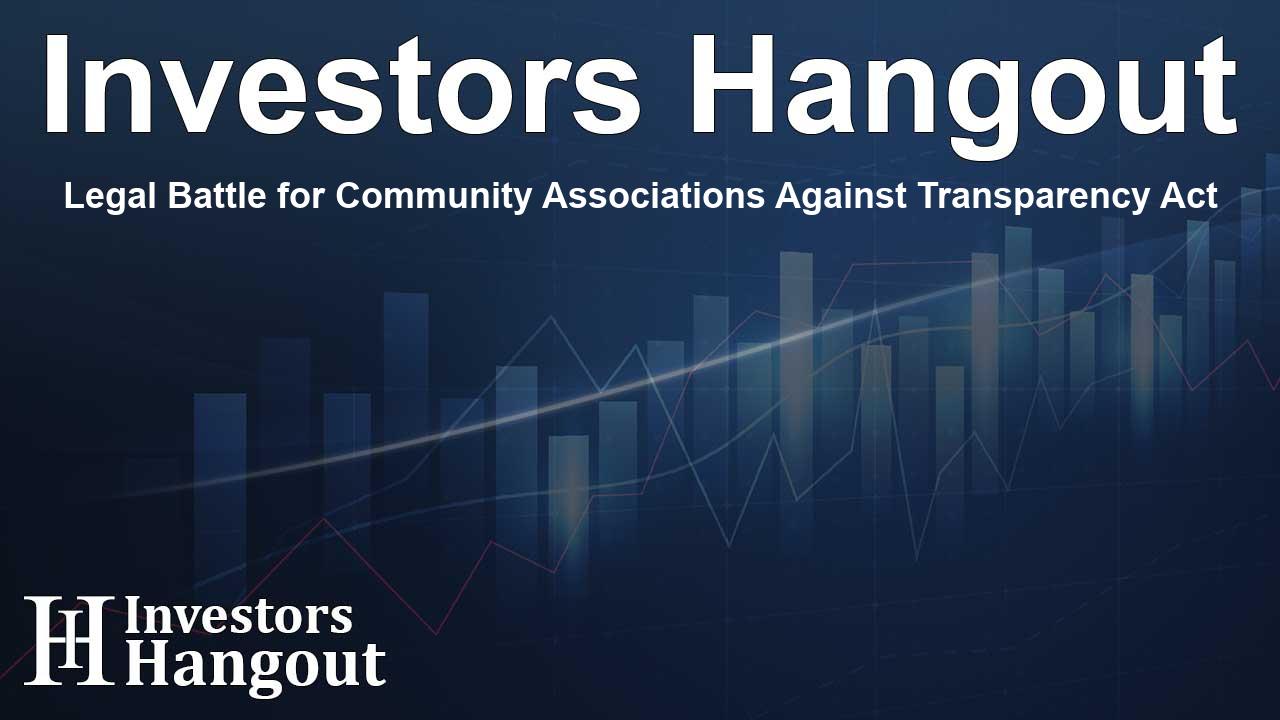Legal Battle for Community Associations Against Transparency Act

Community Associations Institute Challenges New Federal Law
In an important legal move, the Community Associations Institute has filed a lawsuit against the United States Department of the Treasury in the U.S. District Court for the Eastern District of Virginia. This lawsuit seeks to exempt community associations such as condominium associations, homeowners associations, and housing cooperatives from the strict reporting requirements imposed by the federal Corporate Transparency Act.
Understanding the Corporate Transparency Act
The Corporate Transparency Act, passed by Congress in 2021, mandates that various entities, including corporations and LLCs, disclose their beneficial ownership information to the Financial Crimes Enforcement Network. While CAI supports efforts to enhance transparency in combatting financial crimes, they argue that community associations, which are unique and primarily volunteer-run organizations, should not be categorized with traditional, for-profit entities.
The Implications of Compliance
According to CAI, the act's broad reach places an undue burden on over 75.5 million people living in about 365,000 community associations across the country. These associations would be forced to report sensitive personal information about their board members, creating several challenges, particularly for those that are self-managed. Individuals involved in managing these communities may find themselves facing higher administrative costs and potential legal risks due to noncompliance.
Response from Community Associations Institute
Thomas M. Skiba, CAE and CEO of CAI, has expressed the organization’s commitment to advocating for community associations. He stated, "The Corporate Transparency Act’s requirements impose unnecessary and substantial burdens on volunteer-run community associations and threaten their ability to serve their residents effectively. We believe community associations were not the intended targets of this law. In the absence of regulatory relief, we are taking this legal step to protect these vital communities." Skiba highlights the possibility of the act diverting resources away from essential community governance, which may ultimately discourage volunteer efforts.
Current Status of the Lawsuit
As of now, new community associations must comply with the requirements immediately, while existing associations have until the end of the year to submit their information. If compliance is not achieved, consequences can include hefty fines and even imprisonment. CAI's lawsuit aims to mitigate these impacts by advocating for the unique needs of community associations that face different operational realities compared to traditional businesses.
Future Considerations
This lawsuit represents a crucial step in addressing the specific challenges faced by community associations nationwide. CAI is committed to informing both members and the public regarding the developments in this case and anticipates a positive resolution recognizing the unique characteristics of community associations.
Frequently Asked Questions
What is the Corporate Transparency Act?
The Corporate Transparency Act requires certain entities to disclose their beneficial ownership information in order to promote transparency and combat financial crimes.
Why is CAI suing the federal government?
The Community Associations Institute is suing to exempt community associations from the onerous reporting requirements of the Corporate Transparency Act, arguing they are not the intended targets of the legislation.
How many people are affected by this act?
Over 75.5 million Americans living in about 365,000 community associations could be affected by the compliance mandates of the Corporate Transparency Act.
What are the consequences of noncompliance?
Consequences of noncompliance can include fines up to $10,000 and imprisonment for up to two years.
What is CAI's main argument against the act?
CAI argues that the act imposes unnecessary burdens on volunteer-run organizations and diverts resources away from community governance.
About Investors Hangout
Investors Hangout is a leading online stock forum for financial discussion and learning, offering a wide range of free tools and resources. It draws in traders of all levels, who exchange market knowledge, investigate trading tactics, and keep an eye on industry developments in real time. Featuring financial articles, stock message boards, quotes, charts, company profiles, and live news updates. Through cooperative learning and a wealth of informational resources, it helps users from novices creating their first portfolios to experts honing their techniques. Join Investors Hangout today: https://investorshangout.com/
Disclaimer: The content of this article is solely for general informational purposes only; it does not represent legal, financial, or investment advice. Investors Hangout does not offer financial advice; the author is not a licensed financial advisor. Consult a qualified advisor before making any financial or investment decisions based on this article. The author's interpretation of publicly available data shapes the opinions presented here; as a result, they should not be taken as advice to purchase, sell, or hold any securities mentioned or any other investments. The author does not guarantee the accuracy, completeness, or timeliness of any material, providing it "as is." Information and market conditions may change; past performance is not indicative of future outcomes. If any of the material offered here is inaccurate, please contact us for corrections.